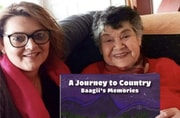People thinking of voluntary assisted dying may be able to donate their organs. We need to start talking about this
- Replies 2
The number of people needing an organ transplant vastly outweighs the number of organs available.
In 2022 there were about 1,800 Australians waiting for an organ but only about 1,200 people received an organ transplant.
But in a recent paper, I outline one unexplored option for increasing the number of potential organ donors in Australia – transplanting organs from people undergoing voluntary assisted dying. This would involve transplanting organs only after someone had died.
It’s estimated about 10% of people eligible for voluntary assisted dying are likely to be medically suitable to donate their organs. Based on Victorian figures alone, this could lead to about an extra 40 potential organ donors each year.
This type of organ donation has taken place for more than 20 years in Europe, and more recently in Canada.
Organs transplanted from donors undergoing voluntary assisted dying have similar success rates to more traditional donations.
Yet, this is a discussion we’ve yet to have in Australia. Here are some of the ethical and practical issues we need to start talking about.
Internationally, this challenge is mainly addressed by having independent assessments by multiple doctors. This is to ensure the motivation is genuine and honest, much like assessing someone before voluntary assisted dying.
Similarly, it is important the doctor of someone undergoing voluntary assisted dying isn’t persuading them to donate an organ. This means any doctor overseeing voluntary assisted dying may be limited in how much they can discuss organ donation with their patient.
Again, this has been managed internationally by having separate, independent doctors overseeing organ donation and voluntary assisted dying, without one influencing the other.

Organ donation may also affect the way voluntary assisted dying is conducted, which may impact participants’ very limited quality of life.
That’s because determining if someone is eligible to donate an organ involves a number of investigations. These may include blood tests, radiology (imaging) and numerous clinical encounters to exclude diseases such as cancer, which would prevent someone donating their organs. These investigations may be exhausting but necessary.
This burden must be weighed against the participant’s wishes and motivation to donate their organs. So people must also be informed of the impact organ donation will have on their limited life left.
The choices of people considering this option must be respected and they must be given multiple opportunities to review their decision, without undue influence or bias.
This is why, internationally, organ donation of this nature mostly occurs in large hospitals, where it’s easier to coordinate.
So if people want to donate an organ this way, they may spend their last moments in an unfamiliar environment.

Efforts have been made internationally to prioritise these valuable last moments by giving people the choice of where voluntary assisted dying occurs (such as their home). But this currently only occurs in a minority of cases and increases the complexity of organ donation.
Regulating the process is also essential to developing a safe, trustworthy and effective program. Ideally a centralised organisation such as Australia’s national Organ and Tissue Authority would organise, undertake and regulate this.
However, this may be challenging given voluntary assisted dying practices are specific to each state.
What might prevent them is how their doctor responds, and whether there are the services and organisations willing to fulfil this request ethically and practically.
The next step in considering this form of organ donation is to discuss the prospect publicly.
Every extra donated organ is potentially lifesaving. So we should make every effort to consider potential safe and ethical ways to increase donation and transplantation rates.
This article was first published on The Conversation, and was written by Robert Ray, Affiliate Associate Lecturer, School of Medicine, Deakin University
In 2022 there were about 1,800 Australians waiting for an organ but only about 1,200 people received an organ transplant.
But in a recent paper, I outline one unexplored option for increasing the number of potential organ donors in Australia – transplanting organs from people undergoing voluntary assisted dying. This would involve transplanting organs only after someone had died.
It’s estimated about 10% of people eligible for voluntary assisted dying are likely to be medically suitable to donate their organs. Based on Victorian figures alone, this could lead to about an extra 40 potential organ donors each year.
This type of organ donation has taken place for more than 20 years in Europe, and more recently in Canada.
Organs transplanted from donors undergoing voluntary assisted dying have similar success rates to more traditional donations.
Yet, this is a discussion we’ve yet to have in Australia. Here are some of the ethical and practical issues we need to start talking about.
Is this ethical? It’s tricky
The main ethical challenge is ensuring a person isn’t motivated to end their life prematurely so they can donate their organs.Internationally, this challenge is mainly addressed by having independent assessments by multiple doctors. This is to ensure the motivation is genuine and honest, much like assessing someone before voluntary assisted dying.
Similarly, it is important the doctor of someone undergoing voluntary assisted dying isn’t persuading them to donate an organ. This means any doctor overseeing voluntary assisted dying may be limited in how much they can discuss organ donation with their patient.
Again, this has been managed internationally by having separate, independent doctors overseeing organ donation and voluntary assisted dying, without one influencing the other.

Is this what people really want, with so little time left? Shutterstock
Organ donation may also affect the way voluntary assisted dying is conducted, which may impact participants’ very limited quality of life.
That’s because determining if someone is eligible to donate an organ involves a number of investigations. These may include blood tests, radiology (imaging) and numerous clinical encounters to exclude diseases such as cancer, which would prevent someone donating their organs. These investigations may be exhausting but necessary.
This burden must be weighed against the participant’s wishes and motivation to donate their organs. So people must also be informed of the impact organ donation will have on their limited life left.
The choices of people considering this option must be respected and they must be given multiple opportunities to review their decision, without undue influence or bias.
Practical issues: coordination, location, regulation
Practically, combining organ donation and voluntary assisted dying is challenging. This includes the difficulty organising and coordinating specialists in organ donation, voluntary assisted dying and transplantation.This is why, internationally, organ donation of this nature mostly occurs in large hospitals, where it’s easier to coordinate.
So if people want to donate an organ this way, they may spend their last moments in an unfamiliar environment.

People may have to be moved to a large hospital with the facilities and staff on hand. Shutterstock
Efforts have been made internationally to prioritise these valuable last moments by giving people the choice of where voluntary assisted dying occurs (such as their home). But this currently only occurs in a minority of cases and increases the complexity of organ donation.
Regulating the process is also essential to developing a safe, trustworthy and effective program. Ideally a centralised organisation such as Australia’s national Organ and Tissue Authority would organise, undertake and regulate this.
However, this may be challenging given voluntary assisted dying practices are specific to each state.
The challenges ahead
If someone considering voluntary assisted dying wants to donate their organs and is deemed eligible, there is currently no legal barrier in Australia to stop them.What might prevent them is how their doctor responds, and whether there are the services and organisations willing to fulfil this request ethically and practically.
The next step in considering this form of organ donation is to discuss the prospect publicly.
Every extra donated organ is potentially lifesaving. So we should make every effort to consider potential safe and ethical ways to increase donation and transplantation rates.
This article was first published on The Conversation, and was written by Robert Ray, Affiliate Associate Lecturer, School of Medicine, Deakin University







